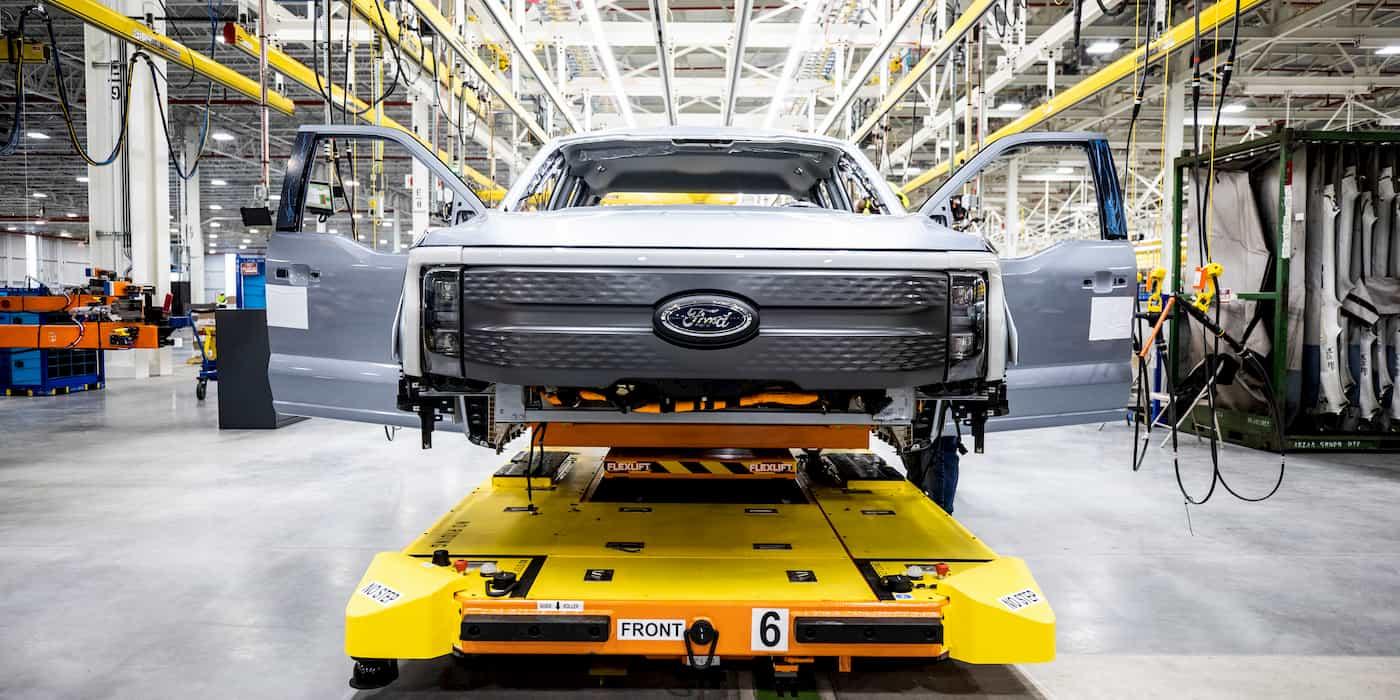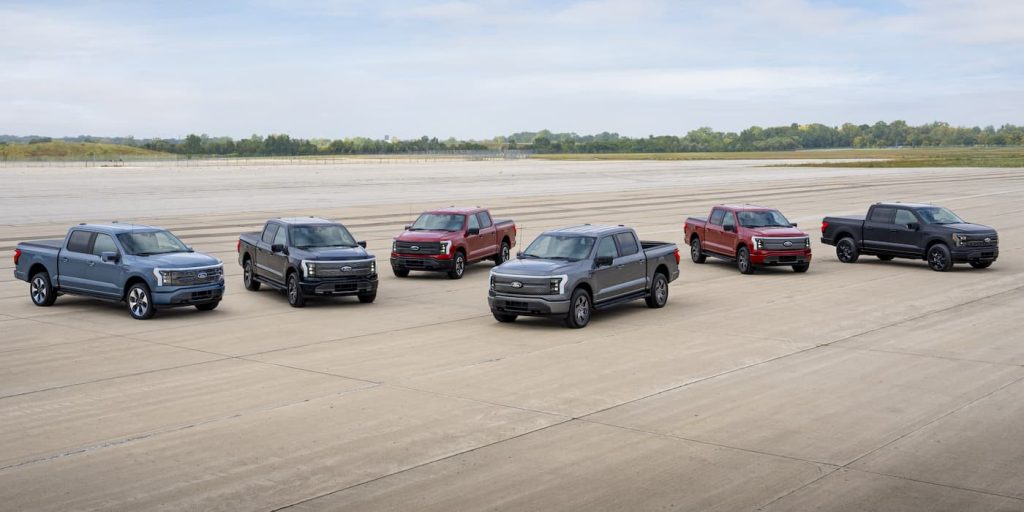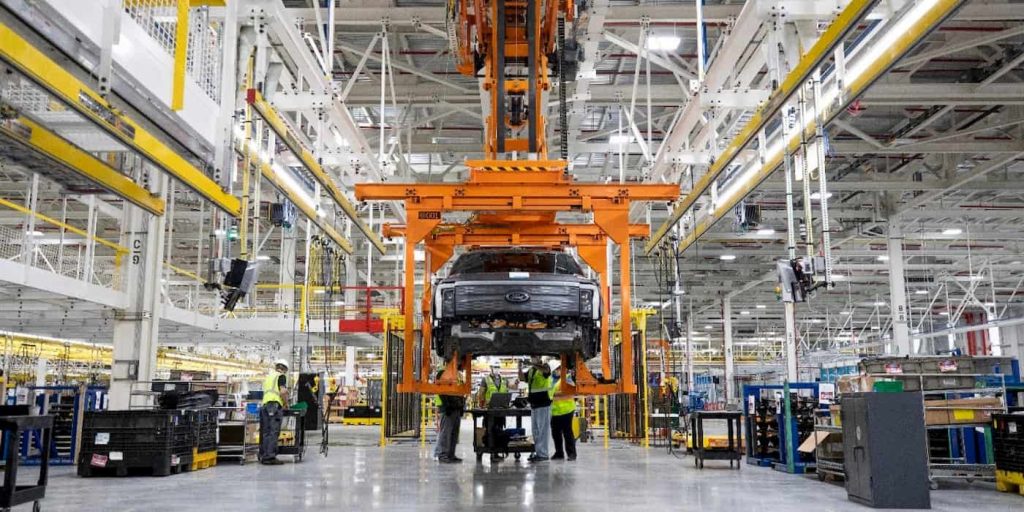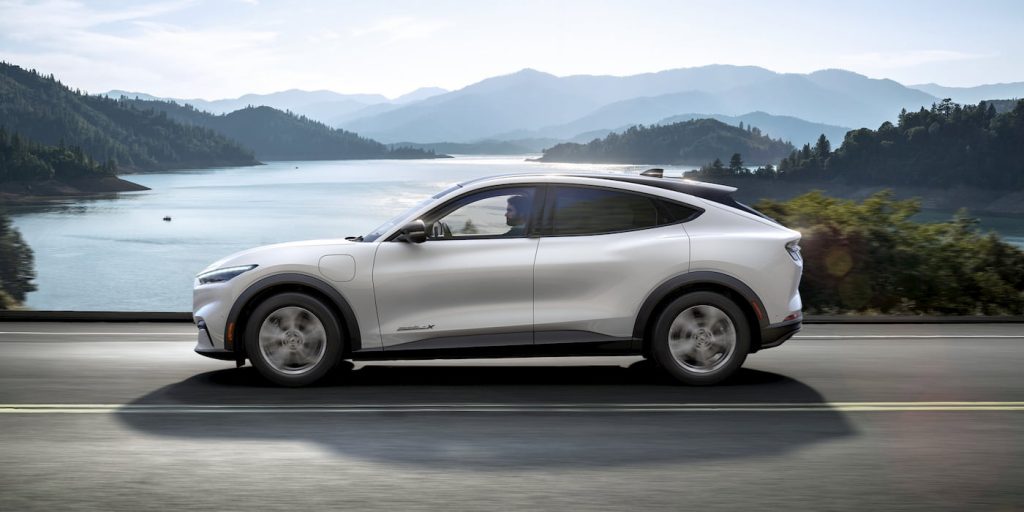
In its latest setback, Ford is cutting back on another significant EV investment. The company is scaling back plans at its $3.5-billion EV battery plant in Michigan as it adjusts to market demand.
Ford said it was “re-timing and resizing some investments” in a statement Tuesday. Although it remains bullish on its long-term strategy, Ford is reducing its investment and cutting jobs at its Michigan EV battery plant.
The company is cutting production capacity at the facility by over 40%. Ford now expects the facility to produce around 20 GWh, a big difference from the 35 GWh initially expected.
Ford is also reducing its investment in the facility by nearly $1.5 billion while cutting the expected number of jobs to 1,700.
After announcing the facility in Marshall, MI, this February, initial plans called for:
- 2,500 new jobs
- 35 GWh annual output of LFP batteries, starting in 2026
- 400,000 EVs in 2026, or 20% of Ford’s expected 2 million output.
Those plans are now being scaled back drastically. The plant will now produce enough LFP batteries for around 230,000 EVs annually.

Ford’s chief communications officer, Mark Truby, told reporters (via Bloomberg) that EV adoption “is not growing at the pace” they expected. Truby said Ford wants to be “really disciplined” about spending and matching future demand.
Ford to scale back Michigan EV plant in latest setback
Ford’s EV plant in Michigan was quickly targeted over its partnership with Chinese battery giant CATL. Plans called for Ford to own the plant while licensing CATL’s tech to build the LFP batteries.
The move is part of Ford’s plans to scale back EV investments. Ford said it was delaying its 600,000 run rate goal until next year over the summer.

More recently, it cut one of three shifts at its Rouge EV complex, where the F-150 Lightning is built. Ford’s CFO, John Lawler, explained last month the company has also “taken out some Mach-E production.
Lawler added that Ford is “slowing down several investments, including making a decision with SK On to delay the second BlueOval SK JV battery plant in Kentucky.”
Ford is pushing back around $12 billion in spending on EVs. Sales of Ford’s electric pickup fell 46% in Q3. The company lost around $36,000 on every EV sold during the quarter.

Truby said the decision was based on “demand and the expected growth for EVs, our business plans, our product cycle plans,” and the ability to create a sustainable plant.
He added, “Labor costs was one of the factors we were looking at.” Ford reached an agreement with the UAW, which increased wages by 25%.
Despite this, Ford said it plans to move ahead with the project. It expects to begin producing LFP battery cells in 2026.
Electrek’s Take
Plans to scale back its Michigan EV battery plant is the latest setback for Ford. The company continues delaying EV investments alongside rival General Motors.
GM revealed it was pushing back production of the Equinox, Silverado, and GMC Sierra Denali EVs last month. Following a four-year run, it’s also not planning to promote its EVs during the 2024 Super Bowl.
Top comment by HalfwitWizard
I wonder if the dealership model is hurting their EV sales and giving them reasons to doubt their EV future? It's easy to talk (especially old people) out of any EV interest and nudge them towards a luxury ICE vehicle instead with better margins and more maintenance visits for the dealership down the road.
My grandfather recently got some ICE Lexus at a dealership. He asked about going electric, And the dealer trashed talked EV's the whole time. "How can you drive to Vegas?", "How long are the lines for charging your car?" "You may want to think about a gas generator to have in the trunk just in case you run out of charge". Really dumb stuff but it works on the old and ignorant who don't know any better. Then they hear cable news channels talking about how EV sales are dying and other exaggerations like that.
When the people who sell your products actively try and dissuade potential customers away you're gonna have a problem. And they probably wont realize it until their market-share erodes.
Meanwhile, rivals, including Hyundai and Volvo, are doubling down as they work to expand their brands.
Hyundai surpassed GM and Ford in EV sales in Q3. Including Kia, Hyundai claimed 7.5% of the market, while GM’s Chevy (5.9%) and Ford (5.5%) fell in the rankings.
Jose Munoz, Hyundai’s global president, told Reuters last week, “Based on what I see, I need more. If I had more capacity today, I could sell more cars.”
Meanwhile, Volvo expects its smallest and cheapest electric SUV, the EX30 (check out our review), to keep momentum rolling next year.
FTC: We use income earning auto affiliate links. More.



Comments